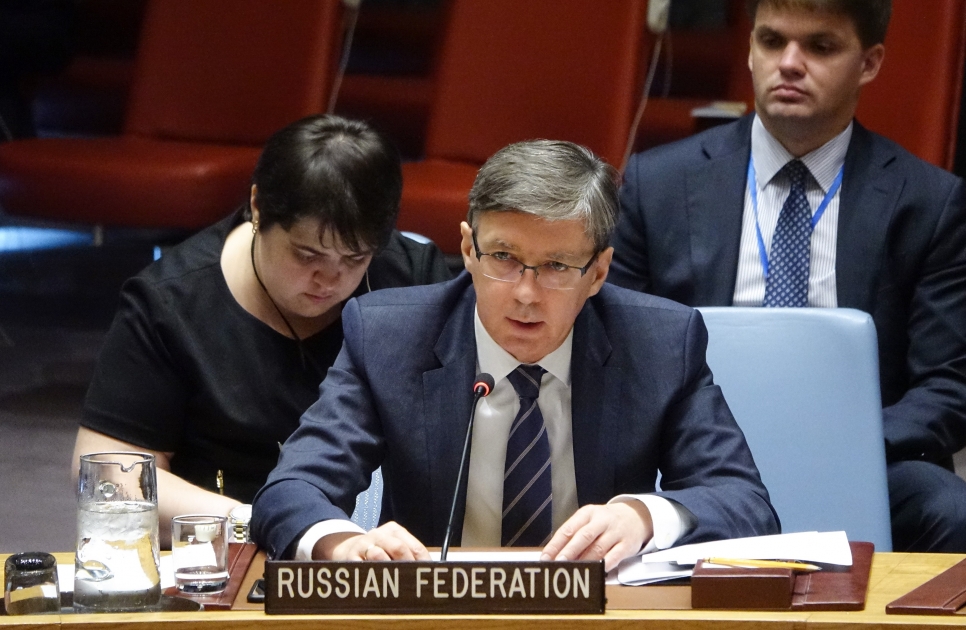Statement by Deputy Permanent Representative of the Russian Federation to the United Nations Mr. Evgeniy Zagaynov at the UN Security Council briefing on the ICC Prosecutor's report on the investigation of the situation in Lybia
The situation in Libya remains difficult and we deplore the fact that people are being killed, including civilians. We hope that the Special Representative of the Secretary-General for Libya, Mr. Ghassan Salamé, will do everything possible within the framework of the plan he has presented to further develop a broadly representative intra-Libyan dialogue under the auspices of the United Nations.
The United Nations will require assistance and consolidated international support, including from regional stakeholders. That assistance must be based on respect for Libyan sovereignty, with no hidden agendas. There is no alternative to achieving reunification of the country and its State institutions as quickly as possible, on conditions determined by Libyans themselves, and the efforts to implement international justice and prevent impunity must also promote the achievement of those aims.
We have taken note of the fourteenth report of the Prosecutor of the International Criminal Court (ICC) on the investigation of the situation in Libya. Going on the report’s information, there have been no breakthroughs on the main topics over the past six months.
The ICC continues to act selectively. In the past six years, not a single case has been initiated dealing with the alleged crimes committed by insurgents. The Prosecutor has recused herself from the investigation of the civilian casualties resulting from NATO strikes.
As before, there is still no information in the report on the Court’s intentions with regard to the atrocities perpetrated by the Islamic State in Iraq and the Levant (ISIL). For example, the reports of terrorist attacks on 4 October on the court building in Misrata have merely been noted, despite the fact that the Court should be well aware of how important the United Nations considers the work of bringing the ISIL terrorists to justice. While the Court has expressed its concern about the army’s actions in recent months in the Derna area, it has made no attempt to bring charges against the mujahidin, who for all practical purposes are holding the local population hostage.
We have noted that the ICC has taken an interest in the alleged crimes against refugees and migrants in Libya, claiming that under certain circumstances some of those crimes may fall within its jurisdiction.
It is clear that Libyan groups operating in the shadows and the criminal networks in the Mediterranean region are all involved in the black market of illegal migration. We await information on the Court’s work in that regard.
With regard to the report’s attempts to once again portray the Libyan dossier as a burden imposed by the Security Council on the Court, our position is unchanged.
My delegation’s general conclusions with respect to the Council’s referral of cases to the ICC, which we have expressed in previous briefings by the Prosecutor, remain the same.
